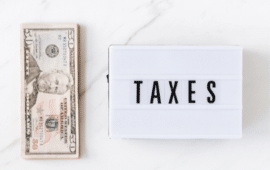
Have you been seriously looking into buying a home this year but struggling to come up with a down payment? One thing you can consider is using your tax refund. It’s actually common for many first-time homebuyers to use their tax refunds as a viable down payment option during tax season.
Benefits of Using Your Tax Returns for Down Payment:
- Maximizing purchasing power. This boost in down payment fund allows you to secure the home of your dreams, even better if you have saved up some money for down payment beforehand. Don’t downplay the down payment on your home purchase.
- Immediate financial leverage. You get quick access to funds. Your tax return needs to be in a liquid form, meaning you should be able to access the funds easily. If your tax return is a physical check, you’ll need to deposit it into your account.
- Getting favorable loan terms. Paying a small amount of money up front can save you tens of thousands of dollars in interest over the life of the loan. Discuss with a mortgage professional the possibility of negotiating favorable loan terms with a substantial down payment. For instance, you could move your monthly payment and interest rate downward (from say, 4.5% to 4.25%) by bringing in some cash.
Other Ways You Can Use Your Tax Return to Help with your Homebuying Goals
- Pay for closing costs, moving costs and earnest funds. Many first time home buyers overlook some additional costs of buying a home. Aside from the down payment and mortgage, you may need to pay closing costs, money to rent a moving truck, or pay an earnest deposit — the money paid to the seller as evidence of your intention to purchase the property.
- Use for home improvement. Say you paid the home in cash and got extra from tax refund, then you may use the surplus for remodel or repairs.
Handling your tax refund
Be prepared to provide documentation if you plan to use the money for down payment. Lenders typically want to verify the source of your funds, so keep a record of your tax return and any related bank statements.
To have a paper trail, you need to deposit the refund in the account you plan to use for your down payment. If your tax return is a physical check, you’ll need to deposit it into your account. Deposit the entire check, do not withdraw and just leave it in your bank account.
Using your tax return money for a down payment is a strategic move that can get you closer to your homeownership dreams! However, weigh the decision carefully, looking over in your overall financial picture and future obligations. If your tax return isn’t sufficient for the entire down payment, explore other potential sources, such as savings, 401K or down payment assistance programs.
Down payment using your tax return demands a balance between immediate goals and long-term financial stability. Talk to a lender now to get pre-qualified. We can recommend the best ones in town, feel free to reach out!



